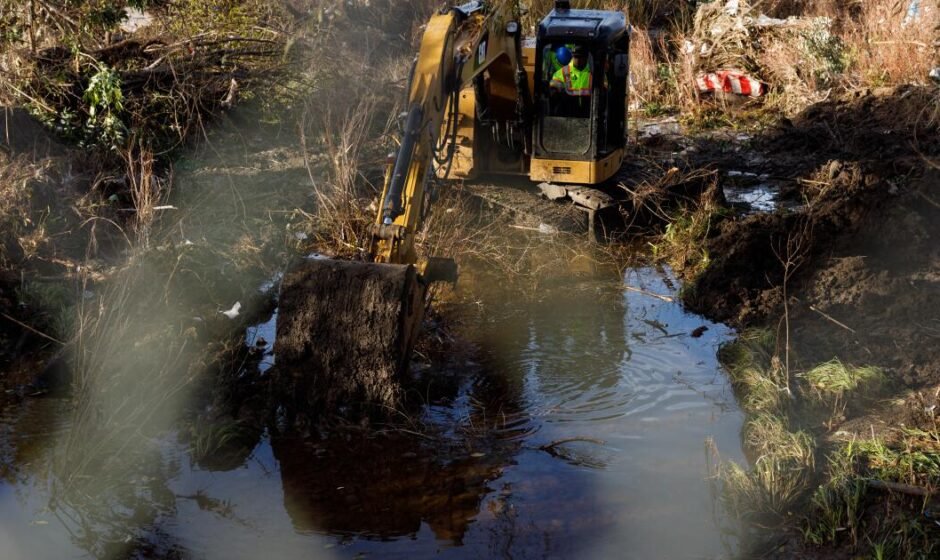San Diego has recently experienced major storms that have caused widespread flooding and damage in some communities. As is often the case during extreme weather events, the discussion has turned to the role of climate change in these events. Mayor Todd Gloria has made the connection between climate change and the storms, but some residents argue that the city’s failure to maintain and improve its stormwater drainage system is to blame for the flooding.
Both sides have valid points. According to scientists, storms are becoming more intense, temperatures are rising, droughts are lasting longer, and seas are rising due to climate change. Long-term climate studies indicate that the San Diego region will experience fewer days with moderate rainfall, but the heaviest rainfall events will become even more intense.
While the impacts of climate change cannot be completely mitigated, there are steps that can be taken to adapt to these changes. One such step is to invest in flood protection infrastructure to better handle the heavy rains associated with these storms. Mayor Gloria has recognized the need for financing such improvements, highlighting the changing climate as a factor.
However, it is important not to become complacent or defeatist about the challenges posed by climate change. Some people may feel that it is too late to make a difference, but experts argue that there is still hope. Climate scientist Michael Mann explains that newer analyses suggest that carbon levels in the atmosphere can start to decrease within a few years after achieving net zero emissions.
The concept of “doomism” has emerged as a psychological barrier to taking meaningful action on climate change. Some individuals may use this mindset as an excuse to avoid making necessary changes. However, experts emphasize that while the situation is dire, there is still much that can be done to mitigate the worst-case scenarios.
Hannah Ritchie, a senior researcher at the University of Oxford, acknowledges the catastrophic consequences of a 2.5 to 3 degrees Celsius increase in global temperature, but she also highlights that progress has been made in reducing emissions. The key to continuing this trend lies in economics rather than politics, as people will naturally gravitate towards cheaper and more efficient solutions.
It is worth noting that climate efforts are not isolated to individual states or countries. China, for example, has become a world leader in developing technology to tackle climate change, with non-fossil fuel energy sources accounting for over 50 percent of the country’s total electricity generation capacity.
Addressing climate change is a complex and challenging task. It requires both defensive measures, such as building infrastructure to protect against extreme weather events, and offensive measures, such as transitioning away from carbon-intensive practices. The scale of the threat posed by climate change is greater than ever before, but the age-old adage of “think globally, act locally” still holds true. Both large-scale actions and individual efforts are necessary to combat climate change.
The year 2023 was the hottest on record, and experts predict that this year will be even hotter. These alarming trends highlight the urgency of taking action to mitigate the impacts of climate change. While the challenges may seem daunting, it is important to remember that progress has been made and that there is still hope for a better future.




